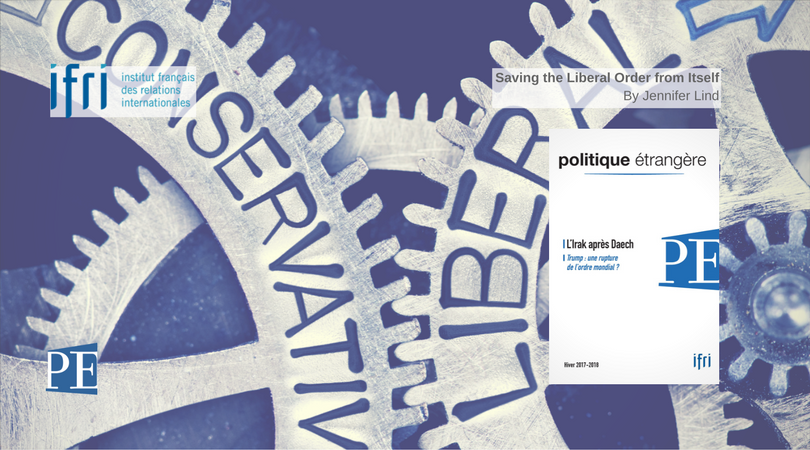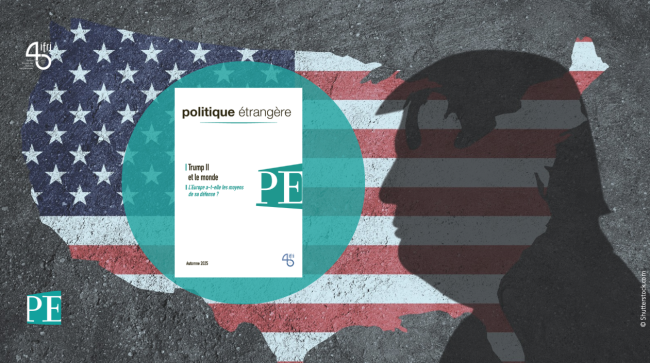Saving the Liberal Order from Itself
The election of Donald Trump is a symptom of a general crisis in international liberal order.

Its costs have been seriously underestimated: relocations breaking the social contract, migratory flows poorly assimilated by societies, divisions between the elites and the masses (the so-called “losers” of globalization), electoral and political crises. Societies should adapt the liberal order to their deep-rooted characteristics, and not accept it as a global and obligatory reality.
Jennifer Lind is Associate Professor of Government at Dartmouth College and Faculty Associate at Harvard University. She is the author of Sorry States: Apologies in International Politics, Ithaca, Cornell University Press, 2008.
Article published in Politique étrangère, Vol.82, No.4, Winter 2017-2018.

Available in:
Regions and themes
Share
Download the full analysis
This page contains only a summary of our work. If you would like to have access to all the information from our research on the subject, you can download the full version in PDF format.
Saving the Liberal Order from Itself
Related centers and programs
Discover our other research centers and programsFind out more
Discover all our analysesBrazil One Year Away from the October 2026 General Elections
Brazil’s general elections will be held on October 4, 2026, to elect the president, vice-president, members of the National Congress, governors, deputy governors and state legislative assemblies. For the presidential and gubernatorial elections, a second round will be held on October 25 if no candidate obtains a majority of the votes in the first round.
Trump II: The Clash of Ideologies
The second Trump administration brings together a number of very different, even opposing, ideologies: far-right populism, the reactionary Christian right, paleolibertarianism, and technolibertarianism. The most visible measures taken since Donald Trump's return to the White House have been populist in nature, with the president's authority strengthened, checks and balances weakened, a form of identity politics embraced, and economic nationalism implemented.
Water in Mexico: an Emergency that Will Wait
Access to water is already and will become increasingly problematic for Mexican economic actors due to the progressive scarcity of the resource resulting from climate change, a geographical distribution that does not coincide with that of the population or economic activity, and management that has so far been far too lax.
Donald Trump v. the States: the Case of New York
While the disruptive policies of the second Trump administration are being implemented at the federal level and on the international stage, they are also being felt in the federal states and major cities across the country. In the spring of 2025, several cases involving the state and city of New York demonstrate that the president’s attacks on environmental protection, the separation of powers, freedom of speech, etc., are also being carried out at the local level.










